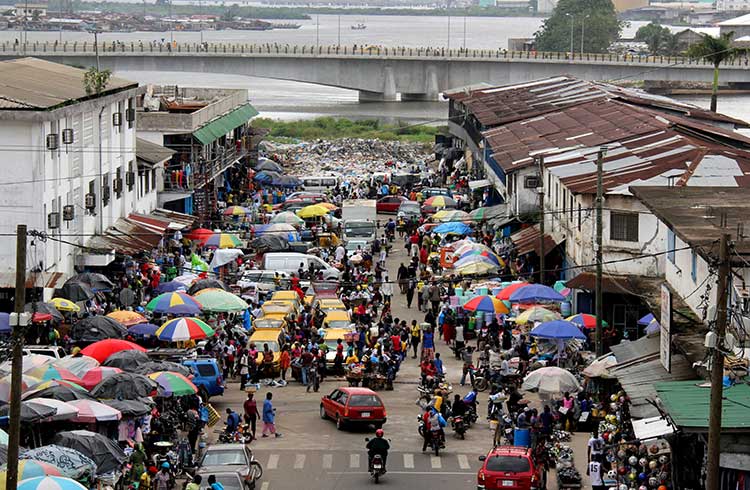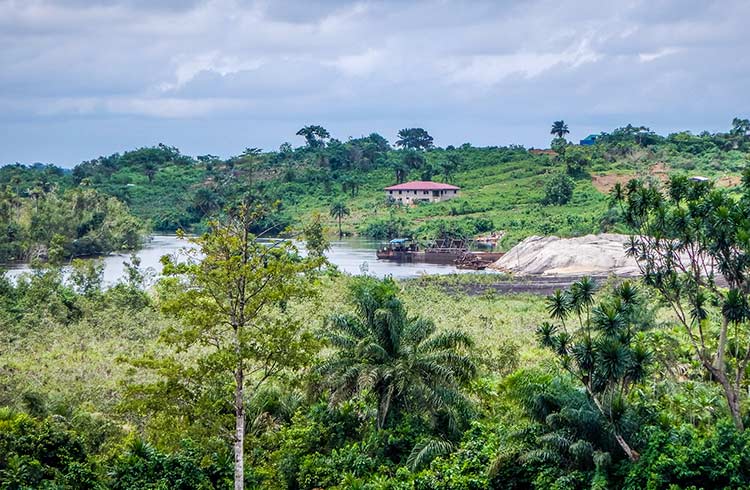Transport in Liberia: Tips for Traveling Around Safely
Attempting to navigate Liberia in a hire car is not recommended for travelers. Here's what you need to know about getting around safely.
 Photo © Getty Images/Travis Lupick
Photo © Getty Images/Travis Lupick
Liberia is still unstable despite the civil war ending in 2003. Traveling through the country is not that easy, as transport options are limited. There is also a risk of crime.
Even if you stay within the town of Monrovia, issues can arise that may make you wish you'd stayed home. Driving in Liberia is exactly what you'd expect from a country that has been torn apart by war.
For starters, there is no public transport from the airport and that includes taxis. So if you don't want to walk for forty kilometres, you should really make arrangements for transportation from the airport to the city center.
You'll also need to make advance accommodation arrangements as hotel space is limited in Monrovia, and you don't want to be walking the streets at night looking for an available room.
Road safety in Liberia, or lack there of
Traffic laws in Monrovia are effectively non-existent and un-enforceable. Driving in Monrovia presents a very real threat to life, or just limb if you're lucky. Traffic accidents happen frequently and often result in death.
It doesn't help that road quality is terrible, with large numbers of potholes present. All forms of motorised transport tend to have far more people in or on them than is safe, and are also incredibly overburdened with luggage of many varieties.
Driver and vehicle quality tends to be substandard, with drivers stopping without signalling, driving at high speeds, overtaking on both the left and the right and anything else you can think of, in poorly maintained vehicles with really bad tyres. If you drive through Monrovia without seeing a tyre blowout, I'd be very surprised.
Intersections present an interesting problem while driving in Monrovia, since there aren't road signs and essentially no traffic laws. Approach these with caution, and look out for both pedestrians and other vehicles who may not see you or care that you're there.
High-speed car convoys of government officials require all other vehicles and pedestrians to pull over until they have passed by. In case you were wondering, yes, they will run you over if you don't get out of the way.
Theft and armed extortion has happened in taxis and really, if the dilapidated state of the taxis in Monrovia wasn't enough to make you steer clear, the fact that taxi drivers tend to rob foreigners should be. It's a good idea to stay away from public transportation altogether.
Traveling beyond Monrovia, is it safe?
If you're traveling outside of Monrovia, you can expect delays at all of the UNMIL checkpoints. Also expect lengthy detours due to amount of road infrastructure damaged by either the civil war, or the annual rains which can wash away roads and bridges.
The political and civil situation in neighbouring countries can become destabilised quickly. It's generally a good idea not to travel anywhere in Liberia apart from Monrovia. If you do venture outside of Monrovia, be very careful around any of the neighbouring country boarders, particularly the Ivory Coast as there are armed groups which can cause trouble.
Border areas are usually highly controlled by authorities from Liberia, Sierra Leone, Guinea, and Ivory Coast. When situations between the countries become tense, these border crossings can close. Be aware that this may happen at any time.
Related articles
Simple and flexible travel insurance
You can buy at home or while traveling, and claim online from anywhere in the world. With 150+ adventure activities covered and 24/7 emergency assistance.
Get a quote
No Comments